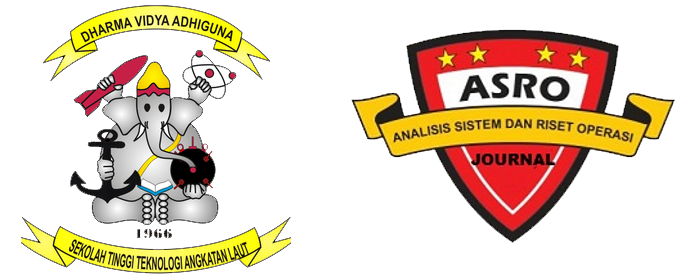THE POLICY OF CURRICULUM DEVELOPMENT IN EDUCATION MANAGEMENT FOR CADET OF INDONESIAN NAVAL ACADEMY
DOI:
https://doi.org/10.37875/asro.v10i3.146Abstract
Graduates of the Surabaya Naval Academy in the next 25 years will occupy the leadership of the Navy's organization with all its complexity and problems. So that the nurturing method implemented at the Indonesian Navy Academy will greatly affect the results of the cadets. The aim of this research is to develop a product for developing cadet Caregiving curriculum based on curriculum developed theories. The method used in this research is descriptive qualitative by carrying out open and closed questionnaires and data triangulation validation. The results showed that the validation of the experts obtained results; 88% design, 90% content, 88% linguistics and 94% material presentation. While the results of field trials: individual test 91.75%, small group test 93.55% and large group test 89.25%. The average results of expert validation and field tests were 90.65%. So that the factors developed during the development of the AAL cadet parenting curriculum are design aspects including feasible categories, content aspects including feasible categories, linguistic aspects including feasible categories and aspects of material presentation including feasible categories so that the AAL cadet parenting curriculum is feasible to use.
Keywords: Curriculum development, Parenting Curriculum, Military Academy Youth Navy.
References
Andrian, D., & Hadi, S. (2018). Instrument Development to Evaluate Local Curriculum in Indonesia. International Journal of Instruction, 921-934.
Bernier, A. (2010). From External Regulation to Self- Regulation: Early Parenting Precursors of Young Children’s Executive Functioning. Child Development, 326–339.
Carl, A. (2005). The “voice of the teacher†in curriculum development: a voice crying in the wilderness? South African Journal of Education, 223-228.
Friga, P. N. (2016). Knowledge Management in Research and Development. Journal Research-Technology Management, 1-8.
Hidayati, A., & Rukun, K. (2014). The Development Of Character Education Curriculum For Elementary Student In West Sumatera . International Journal of Education and Research , 189-198.
Hussain, A. (2011). Evaluation of Curriculum Development Process . International Journal of Humanities and Social Science, 263-271.
Jones, A. (2003). The Development of a National Curriculum in Technology for New Zealand. International Journal of Technology and Design Education, 1-9.
Khan, F. A. (2011). Impact of Training and Development on Organizational Performance. Journal of Management and Business Research, 10-19.
Kumral, O. (2016). A Trial for Curriculum Development: The Effect of Educational Philosophy Curriculum on the Attitudes towards Course and Educational Views. Journal of Education and Training Studies, 191-208.
Mohanasundaram. (2018). Curriculum Design and Development. Journal of Applied and Advanced Research, 100-109.
Patankar. (2013). Role of Teacher's in Curriculum Development for Teacher Education. Jadhav: Megha.
Prasetyo Iswahyudi, Dewie, T. W., Soedjarwo, S., & Hartono, S. (2019). Influence of Graduation Quality and Flight Training as a Vocational School on International Standard Job Opportunities. TEM Journal, 8(4), 1456.
Surendra, K. N. (2010). Curriculum and Course Design: A New Approach Using Quality Function Deployment. Journal of Education for Business, 31-40.



